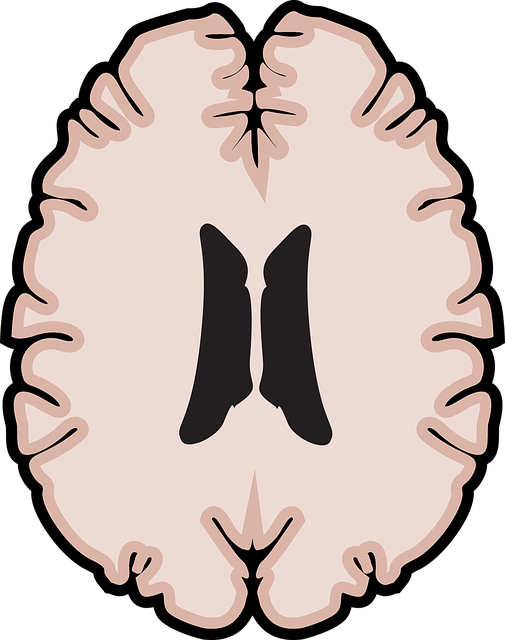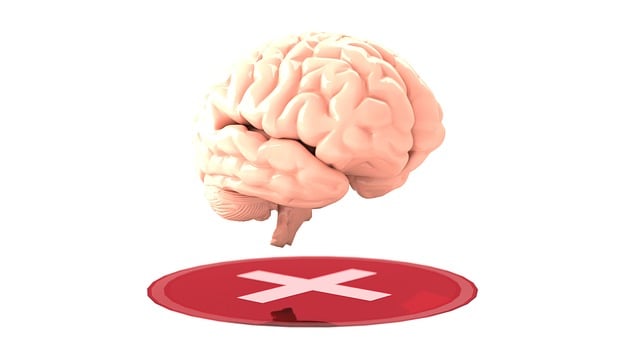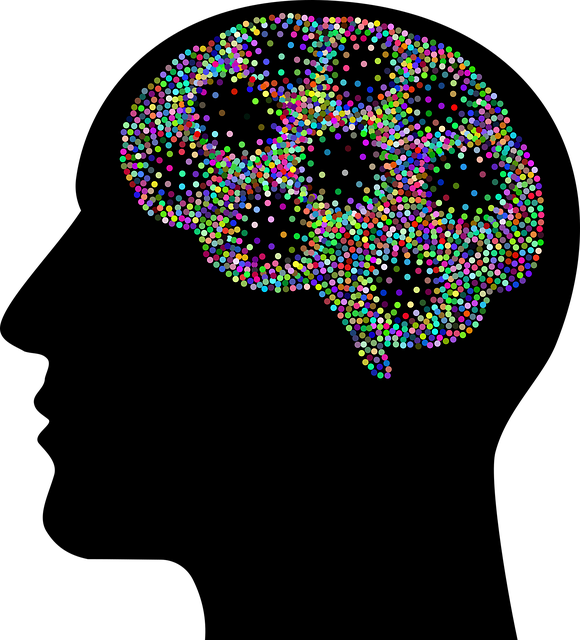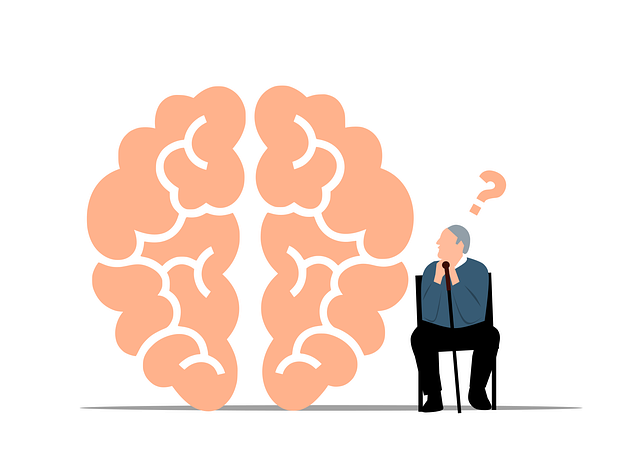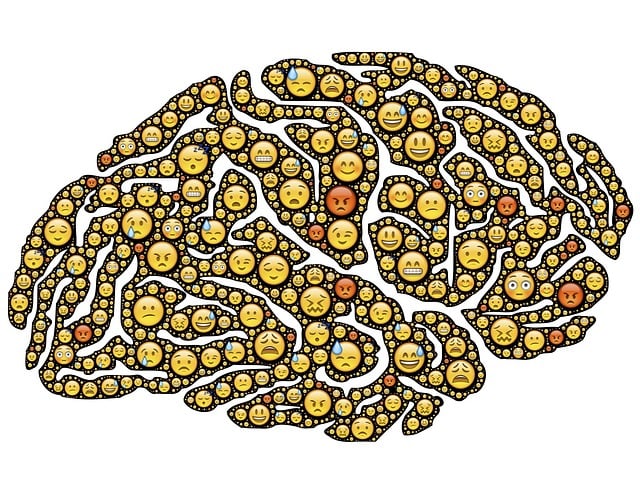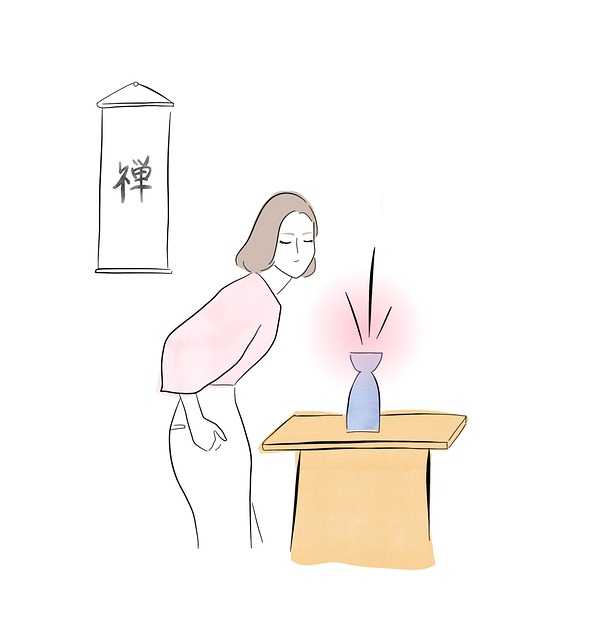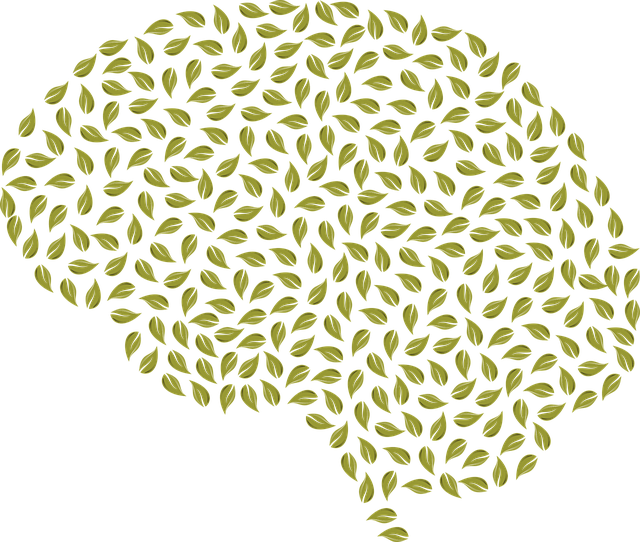Aurora Play Therapy is an innovative therapeutic approach that utilizes play to enhance emotional intelligence (EQ) and overall mental wellness. This method, ideal for stress management, trauma processing, and emotional well-being development, promotes self-awareness through imaginative play scenarios, fostering empathy, social skills, and emotional regulation. By combining evidence-based practices with creative activities, Aurora Play Therapy offers a unique, holistic way to navigate complex emotions, improve relationships, and cultivate the critical components of EQ for personal and professional success.
Emotional intelligence (EQ) is a vital skill set for navigating life’s complexities. This article explores effective strategies for building EQ, drawing on the unique approach of Aurora Play Therapy. We delve into unlocking self-awareness, nurturing empathy through play, and managing emotions proactively. Discover practical applications for integrating emotional intelligence into daily interactions and relationships, fostering deeper connections and enhancing overall well-being.
- Understanding Emotional Intelligence: The Aurora Play Therapy Approach
- Unlocking Self-Awareness: A Key Component of EQ Development
- Nurturing Empathy: Building Connections through Play Therapy
- Managing Emotions Effectively: Strategies for Emotional Regulation
- Practical Applications: Integrating EQ into Daily Life and Relationships
Understanding Emotional Intelligence: The Aurora Play Therapy Approach

Emotional intelligence (EQ) is a crucial aspect of personal growth and well-being, and understanding its nuances can be life-changing. The Aurora Play Therapy Approach offers a unique perspective on fostering emotional intelligence in individuals of all ages. This therapeutic method utilizes play as a powerful tool to help clients explore and express their emotions, thereby enhancing self-awareness and empathy.
Through engaging activities and imaginative play scenarios, Aurora Play Therapy encourages individuals to navigate complex feelings, learn conflict resolution techniques, and reduce the mental illness stigma. By creating a safe and supportive environment, clients can develop emotional regulation skills, improve social interactions, and enhance overall mental wellness. This approach is particularly beneficial for those seeking alternative ways to manage stress, process traumatic experiences, or simply nurture their emotional well-being.
Unlocking Self-Awareness: A Key Component of EQ Development

Self-awareness is a cornerstone in the journey of emotional intelligence development. It involves recognizing and understanding one’s emotions, strengths, weaknesses, and the impact they have on behavior and interactions with others. Through Aurora Play Therapy, individuals can unlock this inner world by engaging in creative play, allowing them to explore their feelings, gain valuable insights, and develop a deeper sense of self-acceptance. By fostering self-awareness, people become more attuned to their emotional responses, enabling better management and regulation.
This process is crucial for personal growth and building strong relationships. Public Awareness Campaigns focused on Emotional Intelligence can play a pivotal role in educating folks about the benefits of high EQ. Additionally, empathy-building strategies, often integrated into trauma support services, contribute to enhancing self-awareness by encouraging individuals to consider others’ perspectives, fostering connection, and understanding across diverse backgrounds.
Nurturing Empathy: Building Connections through Play Therapy

In the realm of Aurora Play Therapy, fostering empathy is a powerful tool for building strong connections and enhancing mental wellness. Through play, therapists facilitate a unique environment where individuals can explore their emotions, learn to understand others’ perspectives, and develop a deeper sense of compassion. This approach, often integrated into therapy sessions, is particularly effective in nurturing the social skills training needed for healthy relationships. By encouraging imaginative play, children and adults alike can express themselves freely, fostering an atmosphere of trust and understanding.
Play Therapy allows participants to engage in activities that stimulate emotional awareness and response, thereby boosting confidence as they navigate various scenarios. The process involves no right or wrong answers; instead, it focuses on exploration and self-discovery. This freedom promotes a safe space for individuals to learn empathy, a critical component of emotional intelligence, which can profoundly impact their interactions in both personal and professional settings.
Managing Emotions Effectively: Strategies for Emotional Regulation

Emotional intelligence involves understanding and managing one’s own emotions as well as recognizing, empathizing, and influencing the emotions of others. Aurora Play Therapy offers a unique approach to helping individuals develop these skills through play-based interventions tailored to different ages and needs. Therapists utilize creative techniques like storytelling, art, and games to help clients explore their feelings, gain insight, and learn healthy coping strategies.
For effective emotional regulation, it’s crucial to identify and label emotions accurately. Aurora Play Therapy therapists guide individuals in recognizing physical cues associated with different emotional states, enabling them to respond mindfully rather than reacting impulsively. Additionally, they teach stress reduction methods such as deep breathing exercises and mindfulness techniques to help manage intense feelings. This holistic approach combines the power of play with evidence-based practices for a more comprehensive understanding and management of emotions, fostering better relationships and overall well-being.
Practical Applications: Integrating EQ into Daily Life and Relationships

Emotional intelligence (EQ) is a powerful tool that can significantly enhance our daily lives and relationships. Beyond theoretical knowledge, practical applications involve integrating EQ into everyday situations. For instance, in Aurora Play Therapy, therapists guide clients to recognize and manage their emotions effectively during play sessions, fostering better self-awareness and empathy. This approach not only aids children in expressing themselves but also teaches them valuable crisis intervention guidance.
Moreover, high EQ fosters healthier relationships by promoting active listening, understanding others’ perspectives, and responding empathetically. In stress management, individuals with strong emotional intelligence are better equipped to handle challenging situations without letting emotions overwhelm them. Furthermore, developing inner strength through EQ helps individuals navigate life’s complexities, encouraging resilience and a more positive outlook.
Emotional intelligence, as enhanced by the Aurora Play Therapy Approach, is a powerful tool for personal growth and improved relationships. By unlocking self-awareness, nurturing empathy, and managing emotions effectively, individuals can navigate life’s challenges with greater ease. Integrating these principles into daily routines fosters deeper connections and enhances overall well-being. The practical applications of Aurora Play Therapy demonstrate its value in transforming lives and creating a more compassionate society.
